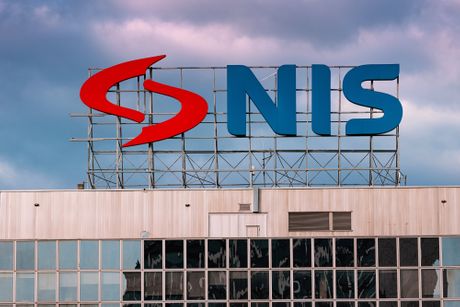Energy expert comments on the situation concerning NIS: THIS would be the best option for Serbia

Energy expert Vladimir Gavrlovic said today that the best solution for NIS (Petroleum Industry of Serbia) - which has been placed under US sanctions - would be for an independent third player to buy the Russian stake in the company, because Serbia did not plan for expenditure of such proportions, and does not have enough funds in the budget to cover such a transaction.
Gavrlovic told Tanjug that spending Serbia's hard currency or gold reserves to "solve" the NIS issue would be catastrophic and that it should not be considered by a country like Serbia, that has the experience of hyperinflation (in the 1990s) - and added said that the Government of Serbia would have to look at the expenditure portion of the budget and make some specific cuts, so that such a transaction could be financed.
"It's also a question of valuation and how much money is at stake there now. This is a multi-billion euro cost, that's how much the 56 percent of Russian ownership in NIS is worth. That's about 2.5 billion euros, those who will do the financial analysis will look at what's happening with the company's debt to the banks, so the cash cost of this transaction would be reduced by that much," he said.
Commenting on the fact that Serbian President Aleksandar Vucic has stated that he is against nationalization, confiscation, or a property grab, but that we must have a solution within a week, Gavrlovic said that a period of seven days is too short to find a solution for NIS, given that it has now been confirmed for the first time that the Americans are demanding a complete exit of the Russian ownership from the company.
Gavrlovic said that until now the official demand had been to reduce that level of ownership below 50 percent, that is, to sell 11 percent to a third party that would be acceptable to everyone, or for Serbia to take it over.
"Here, no one is dealing with the price, but eventually, those negotiations will still come down to determining the price that is mutually acceptable. If a third partner enters the NIS ownership structure, it would take time to do an in-depth analysis of the business, large teams are needed for that, an acquisition agreement would need to be drawn up, it all takes time. That's a huge investment, it takes months to prepare it," he stressed.
Gavrlovic added that a third player who might enter this whole story would not be familiar with the NIS business and that they would need time to learn about it.
According to the expert, if the buyer of the 56 percent of Russian ownership in NIS ends up being the state of Serbia, it would take less time to prepare such a transaction because Serbia (already owns a stake) and has its representatives in the (company's) governing bodies and is therefore familiar with the operations of the company.
When asked what the deadline of February 13 means to us - which is when the Americans said that the transaction regarding the sale of the Russian part of NIS must be completed - if the refinery in Pancevo is about to halt production in a week, Gavrlovic said that the deadline of three months means nothing because NIS is already effectively under sanctions and added that the deadline of February 13 would be worth something if they (the US) said that Serbia has several months during which it can continue to use JANAF (pipeline) as the cheapest form delivery of crude oil to the Pancevo refinery.
As for which companies might embark on negations with the Russians, and which would be a good solution for Serbia and our refinery, Gavrlovic said that so far several players have been mentioned, such as the US investment fund Carlyle, which is also interested in buying Lukoil's assets outside of Russia - and which would be "a good investor if an agreement can be reached with the Russians regarding the price."
He said that another potential investor that would be a good solution could be JANAF because there is an existing "symbiosis" between NIS and JANAF, given that NIS is JANAF's largest customer - and that in that scenario, Serbia's condition should be cross-ownership, i.e. that NIS becomes a co-owner of JANAF, to the same percentage.
"The third and worst option for us is for Serbia to have to come up with the money to buy that large Russian share, and we don't have that money," he added.
Asked what will happen to NIS if a solution is not found by mid-February and whether at that point nationalization would be the only solution, Gavrlovic said that although nationalization or something that is already being considered, the buyer of NIS must be a party that is acceptable to both the US administration and the Russians, and assessed that Serbia will not have much of say in that - unless the state itself becomes the buyer.
(Telegraf.rs/Tanjug)
Video: Projekat "Prirodnim merama za ekološki Gradac"
Telegraf.rs zadržava sva prava nad sadržajem. Za preuzimanje sadržaja pogledajte uputstva na stranici Uslovi korišćenja.

